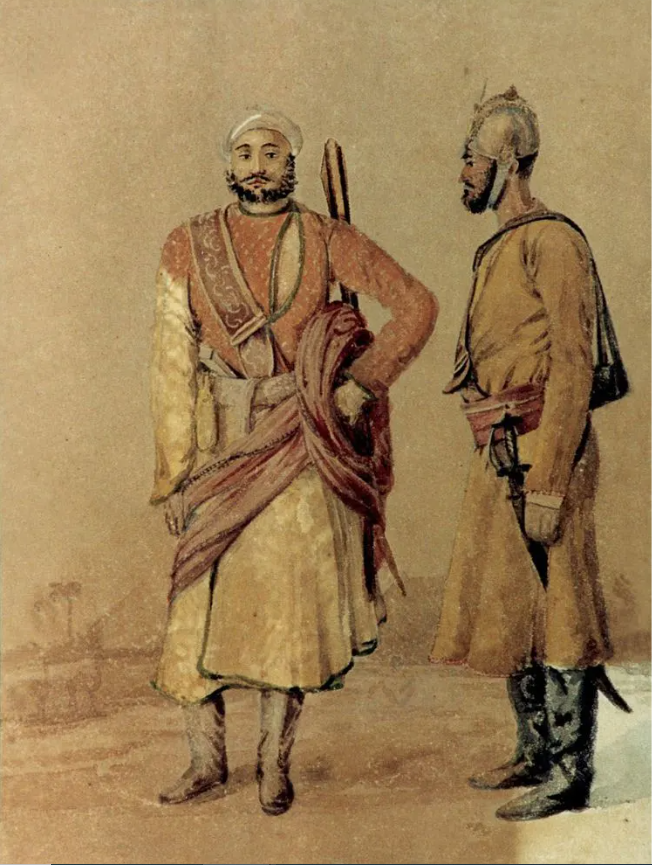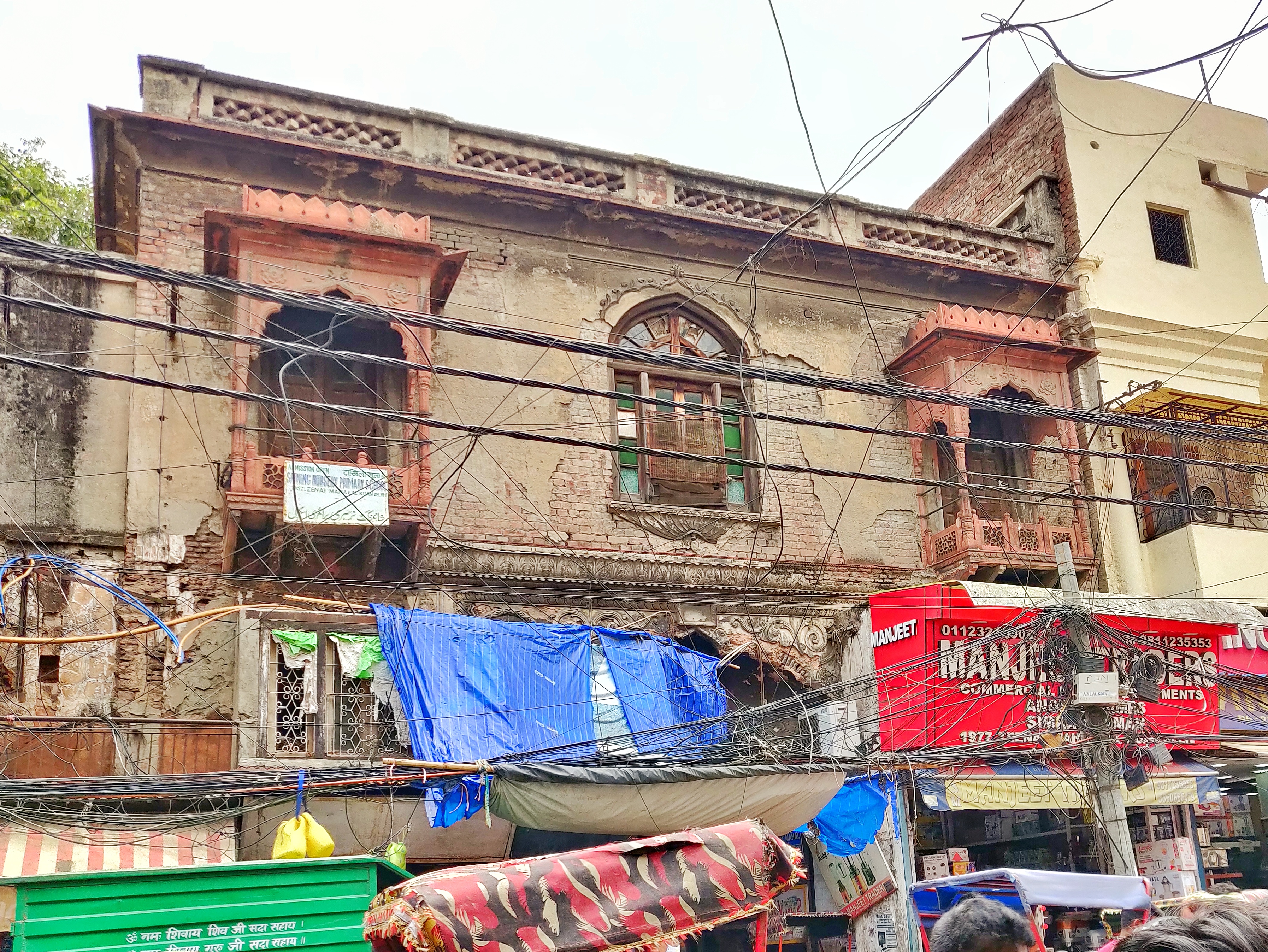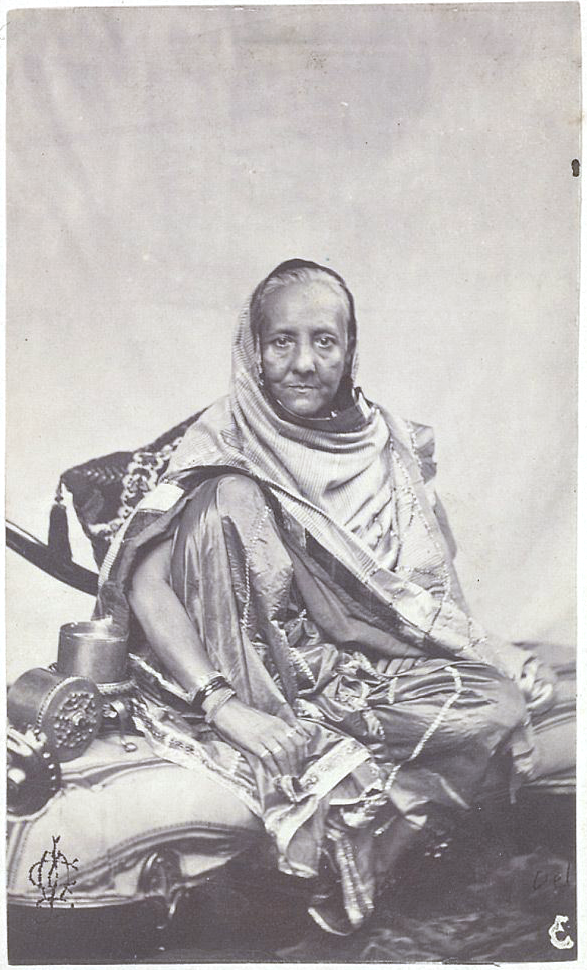|
Mirza Jawan Bakht (Mughal)
Mirza Jawan Bakht (1841 – 18 September 1884) was the son of Emperor Bahadur Shah Zafar and Zeenat Mahal. He was the fifteenth son of his father, but the only son of his mother. She nursed the ambition of placing him on the Mughal throne. Biography His mother, Zeenat Mahal, saved him all through 1857 rebellion and kept him in safe custody. She began promoting her son as heir to the throne over the Emperor's remaining eldest son Mirza Fath-ul-Mulk Bahadur. But due to the primogeniture policy of the British, this was not accepted. On 2 April 1852, at the age of eleven, he was married in a grand ceremony in Delhi to Nawab Shah Zamani Begum, his mother's niece. His mother planned his lavish 10-day wedding to elevate his stature for the throne. His wife, Shah Zamani Begum died in July 1899. After the death of his imperial father in Rangoon Yangon ( my, ရန်ကုန်; ; ), formerly spelled as Rangoon, is the capital of the Yangon Region and the largest city of Mya ... [...More Info...] [...Related Items...] OR: [Wikipedia] [Google] [Baidu] |
Mirza Shah Abbas
Shahzada Mirza Shah Abbas Bahadur (1845 – 25 December 1910) was a prince of the Mughal Empire, the son of Emperor Bahadur Shah II, the last native Emperor of India (King George VI being the last non-native Emperor), by his wife Mubarak-un-Nissa Khanum Begum. He was a younger brother of Prince and former Crown Princes Mirza Dara Bakht, Mirza Jawan Bakht, and [...More Info...] [...Related Items...] OR: [Wikipedia] [Google] [Baidu] |
Jamshed Bakht
Jamshed Bakht was a Mughal descendant through his father, Mirza Jawan Bakht, son of Bahadur Shah II the last Mughal emperor. His mother was his father's maternal cousin Nawab Shah S Begum. In 1859, British authorities removed all bans and restrictions on the Mughal royalty Mughal or Moghul may refer to: Related to the Mughal Empire * Mughal Empire of South Asia between the 16th and 19th centuries * Mughal dynasty * Mughal emperors * Mughal people, a social group of Central and South Asia * Mughal architecture * Mug ... and Bakht received a princely pension of 450 Rupees per month. He had married twice, secondly to Sultana Nadir Begum which allegedly produced Bakht's only son Bedaar Bakht, though he is said to have had at least one son out of wedlock through mistresses. He died in 1921 after which the princely pension was suspended till after Indian Independence. Jamshed Bakht went to get an English education at Diocesan School and Rangoon College and turned out to be a man ... [...More Info...] [...Related Items...] OR: [Wikipedia] [Google] [Baidu] |
Mughal Princes
Mughal or Moghul may refer to: Related to the Mughal Empire * Mughal Empire of South Asia between the 16th and 19th centuries * Mughal dynasty * Mughal emperors * Mughal people, a social group of Central and South Asia * Mughal architecture * Mughlai cuisine * Mughal painting Other uses * Moghulistan in Central Asia ** Moghol people * Moghul, Iran, a village * Mirza Mughal (1817–1857), a Mughal prince * Fiyaz Mughal, founder of Tell MAMA Tell MAMA (Measuring Anti-Muslim Attacks) is a national project which records and measures anti-Muslim incidents in the United Kingdom. It is modelled on the Jewish Community Security Trust (CST) and like the CST it also provides support for vi ... See also * Mogul (other) * Mughal-e-Azam (other) {{disambiguation ... [...More Info...] [...Related Items...] OR: [Wikipedia] [Google] [Baidu] |
King Of Delhi
Emperor or Empress of India was a title used by British monarchs from 1 May 1876 (with the Royal Titles Act 1876) to 22 June 1948, that was used to signify their rule over British India, as its imperial head of state. Royal Proclamation of 22 June 1948, made in accordance with thIndian Independence Act 1947, 10 & 11 GEO. 6. CH. 30.'Section 7: ...(2)The assent of the Parliament of the United Kingdom is hereby given to the omission from the Royal Style and Titles of the words " Indiae Imperator " and the words " Emperor of India " and to the issue by His Majesty for that purpose of His Royal Proclamation under the Great Seal of the Realm.'). According to this Royal Proclamation, the King retained the style and titles 'George VI by the Grace of God, of Great Britain, Ireland and the British Dominions beyond the Seas King, Defender of the Faith'''Indian Independence Act 1947'' (10 & 11 Geo. 6. c. 30) The image of the emperor or empress was used to signify British authority—his ... [...More Info...] [...Related Items...] OR: [Wikipedia] [Google] [Baidu] |
Bahadur Shah II
Bahadur Shah II, usually referred to by his poetic title Bahadur Shah ''Zafar'' (; ''Zafar'' Victory) was born Mirza Abu Zafar Siraj-ud-din Muhammad (24 October 1775 – 7 November 1862) and was the twentieth and last Mughal Emperor as well as an Urdu poet. He was the second son and the successor to his father, Akbar II, who died on 28 September 1837. He was a titular Emperor, as the Mughal Empire existed in name only and his authority was limited only to the walled city of Old Delhi (Shahjahanbad). Following his involvement in the Indian Mutiny of 1857, the British exiled him to Rangoon in British-controlled Burma in 1858, after convicting him on several charges. Bahadur Shah Zafar's father, Akbar II, had been imprisoned by the British and he was not his father's preferred choice as his successor. One of Akbar Shah's queens pressured him to declare her son, Mirza Jahangir, as his successor. However, The East India Company exiled Jahangir after he attacked their resident in ... [...More Info...] [...Related Items...] OR: [Wikipedia] [Google] [Baidu] |
Rangoon
Yangon ( my, ရန်ကုန်; ; ), formerly spelled as Rangoon, is the capital of the Yangon Region and the largest city of Myanmar (also known as Burma). Yangon served as the capital of Myanmar until 2006, when the military government relocated the administrative functions to the purpose-built capital city of Naypyidaw in north central Myanmar. With over 7 million people, Yangon is Myanmar's most populous city and its most important commercial centre. Yangon boasts the largest number of colonial-era buildings in Southeast Asia, and has a unique colonial-era urban core that is remarkably intact. The colonial-era commercial core is centered around the Sule Pagoda, which is reputed to be over 2,000 years old. The city is also home to the gilded Shwedagon Pagoda – Myanmar's most sacred and famous Buddhist pagoda. Yangon suffers from deeply inadequate infrastructure, especially compared to other major cities in Southeast Asia, such as Jakarta, Bangkok or Hanoi. Though ... [...More Info...] [...Related Items...] OR: [Wikipedia] [Google] [Baidu] |
Primogeniture
Primogeniture ( ) is the right, by law or custom, of the firstborn legitimate child to inherit the parent's entire or main estate in preference to shared inheritance among all or some children, any illegitimate child or any collateral relative. In most contexts, it means the inheritance of the firstborn son (agnatic primogeniture); it can also mean by the firstborn daughter (matrilineal primogeniture). Description The common definition given is also known as male-line primogeniture, the classical form popular in European jurisdictions among others until into the 20th century. In the absence of male-line offspring, variations were expounded to entitle a daughter or a brother or, in the absence of either, to another collateral relative, in a specified order (e.g. male-preference primogeniture, Salic primogeniture, semi-Salic primogeniture). Variations have tempered the traditional, sole-beneficiary, right (such as French appanage) or, in the West since World War II, eliminate ... [...More Info...] [...Related Items...] OR: [Wikipedia] [Google] [Baidu] |
Mirza Fath-ul-Mulk Bahadur
Shahzada Mirza Fath-ul-Mulk Bahadur also known as Mirza Fakhru ( 1816 or 1818 – 10 July 1856) was the last Crown Prince of the Mughal Empire. Biography A senior Prince of the Mughal Royal Family, he was the son of Bahadur Shah Zafar, the last Mughal Emperor, through his wife Rahim Bukhsh Bai Begum. Fath-ul-Mulk was named Crown Prince in 1853. However he predeceased his father, dying of in 1856. Other sources suggest that he was poisoned. Family Fath-ul-Mulk was an older brother of Prince and the young ...[...More Info...] [...Related Items...] OR: [Wikipedia] [Google] [Baidu] |
1857 Rebellion
The Indian Rebellion of 1857 was a major uprising in India in 1857–58 against the rule of the British East India Company, which functioned as a sovereign power on behalf of the British Crown. The rebellion began on 10 May 1857 in the form of a mutiny of sepoys of the Company's army in the garrison town of Meerut, northeast of Delhi. It then erupted into other mutinies and civilian rebellions chiefly in the upper Gangetic plain and central India, though incidents of revolt also occurred farther north and east. The rebellion posed a considerable threat to British power in that region, and was contained only with the rebels' defeat in Gwalior on 20 June 1858., , and On 1 November 1858, the British granted amnesty to all rebels not involved in murder, though they did not declare the hostilities to have formally ended until 8 July 1859. Its name is contested, and it is variously described as the Sepoy Mutiny, the Indian Mutiny, the Great Rebellion, the Revolt of 1857, ... [...More Info...] [...Related Items...] OR: [Wikipedia] [Google] [Baidu] |
Zeenat Mahal
Zeenat Mahal; (1823 – 17 July 1886) was the only wife and de facto regent of the Mughal Empire on behalf of her husband, the Mughal emperor Bahadur Shah Zafar. Biography Zeenat Mahal married Bahadur Shah II at Delhi on 19 November 1840 and had a son with him, Mirza Jawan Bakht. She greatly influenced the emperor and, after the death of crown prince Mirza Dara Bakht, she began promoting her son Mirza Jawan Bakht as heir to the throne over the Emperor's remaining eldest son Mirza Fath-ul-Mulk Bahadur. But due to the primogeniture policy of the British, this was not accepted. She was suspected of poisoning the British Resident in Delhi, Thomas Metcalfe, in 1853 for meddling too much in palace affairs. She resided at her own ''haveli, Zeenat Mahal,'' in Lal Kuan, old Delhi. 1857 rebellion During the Indian rebellion of 1857, she kept her son out of contact with the rebels in an attempt to secure the throne for him. With the British victory, the emperor's two other sons were s ... [...More Info...] [...Related Items...] OR: [Wikipedia] [Google] [Baidu] |
Shah
Shah (; fa, شاه, , ) is a royal title that was historically used by the leading figures of Iranian monarchies.Yarshater, EhsaPersia or Iran, Persian or Farsi, ''Iranian Studies'', vol. XXII no. 1 (1989) It was also used by a variety of Persianate societies, such as the Ottoman Empire, the Kazakh Khanate, the Khanate of Bukhara, the Emirate of Bukhara, the Mughal Empire, the Bengal Sultanate, historical Afghan dynasties, and among Gurkhas. Rather than regarding himself as simply a king of the concurrent dynasty (i.e. European-style monarchies), each Iranian ruler regarded himself as the Shahanshah ( fa, شاهنشاه, translit=Šâhanšâh, label=none, ) or Padishah ( fa, پادشاه, translit=Pâdešâh, label=none, ) in the sense of a continuation of the original Persian Empire. Etymology The word descends from Old Persian ''xšāyaθiya'' "king", which used to be considered a borrowing from Median, as it was compared to Avestan ''xšaθra-'', "power" and " ... [...More Info...] [...Related Items...] OR: [Wikipedia] [Google] [Baidu] |
Bahadur Shah Zafar
Bahadur Shah II, usually referred to by his poetic title Bahadur Shah ''Zafar'' (; ''Zafar'' Victory) was born Mirza Abu Zafar Siraj-ud-din Muhammad (24 October 1775 – 7 November 1862) and was the twentieth and last Mughal Emperor as well as an Urdu poet. He was the second son and the successor to his father, Akbar II, who died on 28 September 1837. He was a titular Emperor, as the Mughal Empire existed in name only and his authority was limited only to the walled city of Old Delhi (Shahjahanbad). Following his involvement in the Indian Mutiny of 1857, the British exiled him to Rangoon in British-controlled Burma in 1858, after convicting him on several charges. Bahadur Shah Zafar's father, Akbar II, had been imprisoned by the British and he was not his father's preferred choice as his successor. One of Akbar Shah's queens pressured him to declare her son, Mirza Jahangir, as his successor. However, The East India Company exiled Jahangir after he attacked their resident in ... [...More Info...] [...Related Items...] OR: [Wikipedia] [Google] [Baidu] |





